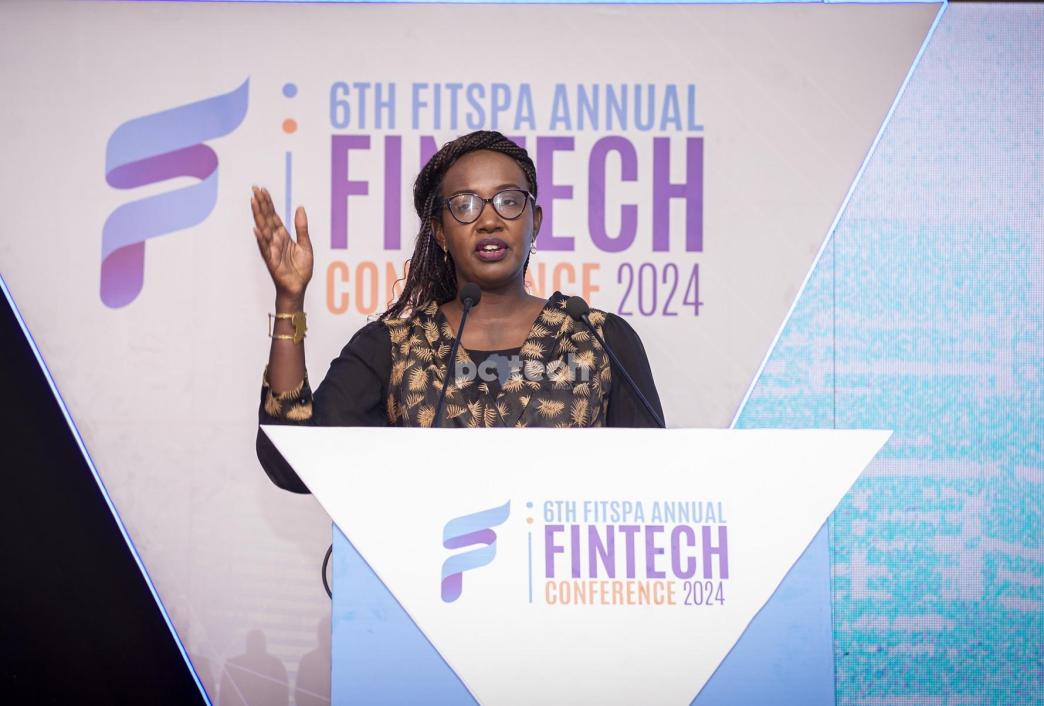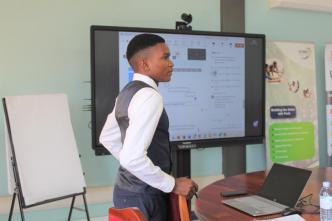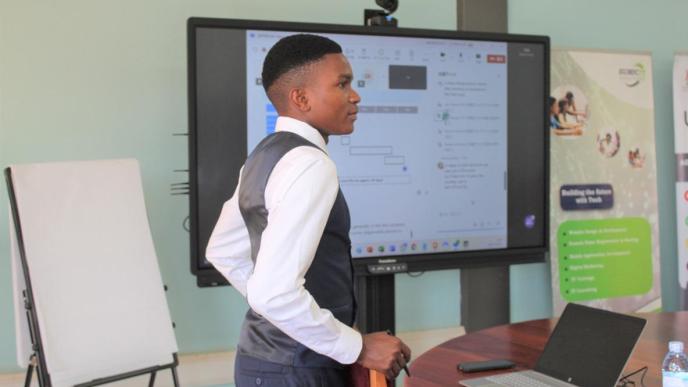Last week from October 3-4th, the Financial Technology Service Providers Association (FITSPA) held its 6th annual conference at Kampala Sheraton Hotel under the theme “Collaboration for Growth: Leveraging Partnerships and Collaboration to Drive Innovation and Growth in Uganda’s Fintech Sector”. The two-day conference was led by inter-sector dialogue and conversations highlighting the relevance of mutually beneficial engagement and collaboration between sectors and shedding light on proven strategies and models for building the fintech ecosystem.
The conference gathered industry leaders, innovators, and professionals to understand the evolving digital landscape and harness its potential. It also featured keynote speeches and discussions —and in one of the keynotes by Pheona Walls Nbasa; Managing Partner at Nbasa & Co-advocates discussed “Maximizing Collaboration through Community, Platforms, and Resources.”
Collaboration isn’t just a buzzword in today’s digital era, but a critical driver for innovation, and growth. During Nbasa’s keynote at the FITSPA annual conference, her discussion centered on this very theme, delving into the power of collaboration, and how organizations and individuals can work together to amplify their impact. She said;
Collaboration is not just about making friends or seeking comfort in company. We collaborate for impact.
Nbasa highlighted several principles crucial for effective collaboration, starting with inclusive engagement which involves bringing together stakeholders from different sectors, industries, and demographics. A notable example she gave was the creation of a women’s platform at FITSPA; FITSPA Women —a testament to the power of inclusion in fostering collaboration.
FITSPA Women is a community of women in technology and digital Financial Services. It was established to empower and support women in the sector. Through various activities, FITSPA Women aims to promote gender diversity and inclusion in the industry and support women in achieving their full potential.
Nbasa discussed the two types of collaboration; which are vertical and horizontal collaborations, illustrating them through examples from the fintech sector. Vertical collaborations occur when a larger organization partners with a smaller one—for instance, a large bank teaming up with a fledgling fintech startup. In these cases, the larger entity helps lift the smaller one by sharing resources, knowledge, or access to markets. Horizontal collaborations, on the other hand, happen between organizations on the same level, working together as equals to drive mutual benefit.
She noted that both types of collaborations are crucial in today’s business environment, where interdependence can significantly enhance outcomes.
Effective teamwork relies on values that encourage diversity and openness, in communication to achieve objectives through collaborative leadership and resource pooling. A fundamental element of teamwork involves participation by combining different viewpoints and ideas to tackle intricate problems. The fintech sector showcases this by engaging experts, from healthcare, agriculture, finance, and various other industries. By leveraging these alliances companies can create solutions that cater not only to the financial domain but also to broader social issues. This focus, on inclusivity fuels creativity. Amplifies the effectiveness of working as a team.
Open communication and trust are the pillars that uphold successful partnerships. Without transparent dialogue and mutual trust, collaborations are prone to fail. Clear and consistent communication ensures that all parties feel valued and can contribute their ideas freely. Trust, in turn, creates a safe environment where stakeholders can work together authentically. When communication is strong, misunderstandings are minimized, and teams can align more effectively toward common goals. As Nbasa emphasized, shared objectives are crucial—collaborators must be working toward the same end. Aligning goals from the start not only creates unity but also prevents conflicts that may arise from divergent priorities.
Leadership is another essential element that shapes the success of collaboration. Rather than dominating the conversation, collaborative leaders, like those at FITSPA, empower others to take the stage and contribute meaningfully. This approach enhances the collective impact by allowing a range of voices and ideas to flourish. In addition, to this benefit of collaboration is the aspect of resource sharing where combining assets and expertise can result in cost savings due, to economies of scale When resources are distributed fairly and effectively during a collaboration the outcomes are magnified enabling the group to accomplish greater things collectively than they could achieve alone.
Leveraging platforms and social media for collaboration
Platforms such as Slack, Trello, and even open-source platforms help teams work together seamlessly, irrespective of geographical boundaries —Nbasa stressed —noting that they allow for easier knowledge sharing, task management, and even the co-creation of products and services.
Social media can also be a great way to spread the message and reach out to people, especially those who share the same or a similar vision as you have, said Nbasa, adding that it is a means of bringing together otherwise unrelated people across industries. For instance, she said, there could be groundbreaking innovations that come out of partnerships between technology startups and areas like healthcare or legal services that provide a new way to solve problems.
Data and resource optimization
Data and resource optimization was another key discussion in her keynote. “Data is key in shaping wise decisions in industries such as finance and technology,” she said. Nbasa shared a personal experience from the early days of Airtel Uganda, where a data-driven decision to switch off an unpopular service led to a surge in sales. This example underscored how important it is to leverage data analytics for optimized resource allocation and decision-making.
In a broader sense, resource optimization is about making the most of shared knowledge and expertise within a community. Whether it’s through specialized clusters, like those set up by the Law Society, or collaborative partnerships within the fintech space, sharing resources leads to greater efficiency and success.
Nbasa’s keynote at the FITSPA 6th annual conference was clear —collaboration is the key to unlocking collective potential. Whether through inclusive engagement, open communication, or shared resources, working together can amplify impact in ways that individual efforts cannot.
As Nbasa eloquently put it, “Would you rather be a big fish in a pond, or an ordinary fish in the sea?” The answer lies in the willingness to collaborate—to step beyond personal ambitions and work toward a common goal. By doing so, individuals and organizations can create space for growth, innovation, and, ultimately, greater impact.













